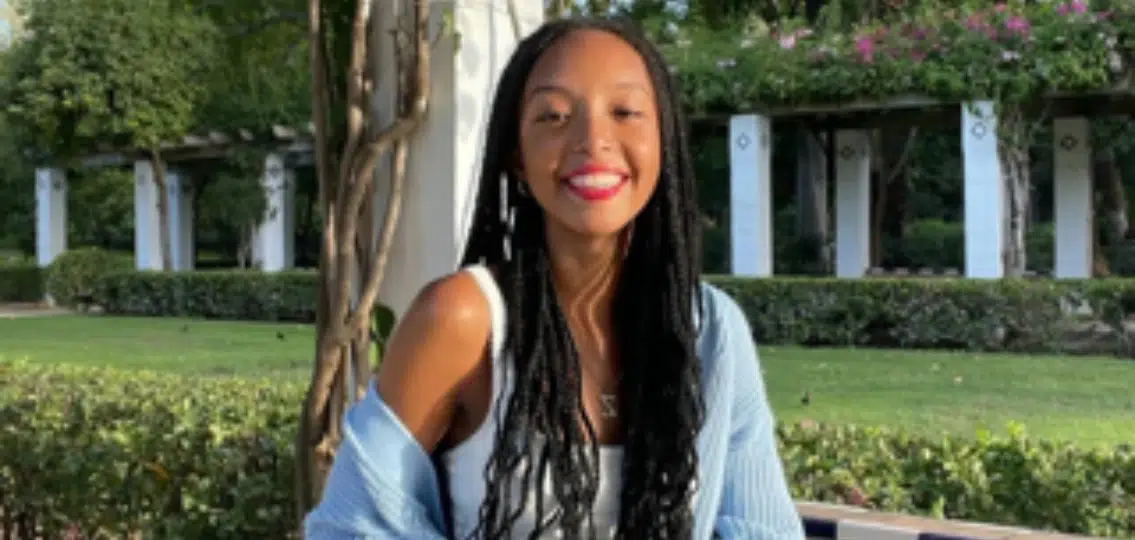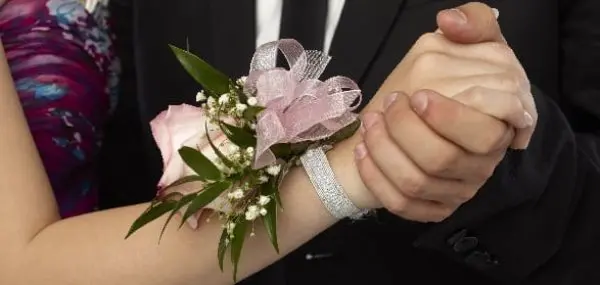My daughter walked out of her bedroom, trembling. She grabbed the banister, and on wobbling legs, crept down the stairs.
“I. Can’t. Believe. That. Just. Happened,” she said, giving each word the stage before the next word left her mouth.
A few days prior, my daughter had driven her brother to the chess club at our local high school. While watching the match, a young man sat beside her, waiting his turn. A conversation sparked between them. They talked about plans after high school, where they wanted to travel, and their favorite foods. Over dinner that night, she smiled as she told us about him.
I inhaled deeply, already knowing where this was heading.
My daughter, at seventeen, graduated high school a year early and was taking a gap year before starting college. She was using this time to begin learning how to navigate the world as an adult. She had a job at Starbucks, bought her first stock, and earned her Doula certification. She became the unofficial chauffeur for her siblings. She had never dated (except for going to the prom a few months prior) but now I suspected her dating status was about to change, too.
When she asked if it was okay to hang out with this boy she met at her brother’s chess club, I said yes. And so, she picked the day and place. Since her date was still in school, she told him to pick the time. They settled on meeting Friday for a coffee date at Starbucks.
Three days before their date, they talked about the churches they attended. When she mentioned her church, he said he knew someone there — a specific girl my daughter also knew. He shared that he and this girl had dated and things had not ended well.
After that conversation, my daughter reconsidered her plan to date him. She found his dating history concerning, and dating someone connected to her church made her uncomfortable. On Thursday, she canceled their Friday coffee date.
He did not seem to take this romantic rejection well. He texted to ask if she was canceling because of the girl he previously dated. Honoring her personal boundaries, she texted back, “This is just too close for comfort for me.”
Her phone rang. She ran to her room and closed the door behind her. Within minutes, she emerged, quivering. Like a herd of elephants gathering around their wounded, our family encircled my daughter as she recounted his verbal berating.
“He said I was an immature liar who didn’t know what I was doing. And how dare I call myself a Christian?”
She had barely recovered her composure when her phone pinged again.
The tremors in her hand returned as she lifted her phone to show us an image and this message: “custom handmade Damascus steel blade dagger knife.”
His threatening text message penetrated the walls of our home, our safe haven.
The following morning, my husband and I talked about the incident and discussed ways to protect our daughter. We thought maybe she could just drive her brother to his chess class and wait for him outside. But then we thought about the possible threat to our son’s safety. We considered altering our schedules so that one of us could drive our son to chess instead of her. But the more we talked about how best to protect our children, the more I grew weary and angry.
It felt unfair that we had to adjust our lives because of the dagger boy. A white boy who was home, safe, and undisturbed by how his text had disrupted our lives.
I called the school to speak with the principal. “Since your daughter is no longer a student, there is nothing I can do about the situation,” she said.
A stagnant standoff of silence between us followed. Finally, I thanked her through gritted teeth, all the while wishing I could hang up on her by slamming down the receiver of a landline phone from the 90s.
A few days passed, and I still couldn’t shake the feeling that dagger boy got away with this threat he might do the same with someone else’s daughter. I was scared that his verbal abuse and threats might escalate into actual bodily harm.
I drove to the local police office. After waiting twenty-minutes, an officer joined me in a small room. He asked questions in a pleasant southern voice. He nodded his head as I described the technology abuse. When I pulled my phone out to show him the threatening text that the dagger boy sent to my daughter, he looked at it. I thought he understood the danger that dagger boy’s threat had posed.
But then the officer looked me in the eye and said, “Well, he is a teenage boy. Maybe what he was trying to say is that she put a dagger in his heart, breaking it,” which made the hairs on my body raise and prickle my skin like thorns. I explained that, as a Black mother, I do not have the privilege or the luxury of thinking in such a lighthearted manner. Also, if the dagger boy felt that way, there’s a broken heart emoji he could have used instead.
The officer said he understood me, but I knew he did not. This young, white, male officer couldn’t understand the exhaustive work of raising Black children in a world that deems it okay to threaten Black bodies without consequences over and over again.
“What do you want me to do?” he asked.
His question was simple, but after a week of pondering the dagger boy’s action, my silent standoff with the principal, and this conversation with the police, I was beyond exhausted and disappointed that he wasn’t taking the lead on this to provide some help.
“I don’t want to press charges,” I told him. “I just want the dagger boy to know that his behavior was unacceptable and that my daughter did not find his text endearing. That it seemed, instead, like a threat.”
The police officer promised to call the young man and inform the school resource officer of the incident.
A few days later, my daughter received a voicemail from the dagger boy. She played it on speakerphone so I could listen. “I didn’t mean to send it to you.… I was sending it to a friend,” he snickered and lied.
His voice, his tone, his choice of words, and his denial were menacing reminders that people have dehumanized Black lives for a long time in this nation’s history, and that we continue to suffer degradations to this date.
I want my daughter and everyone else to know that all girls, no matter the color of their skin, have the right to cancel and to say no to a date. Black people are body, blood, and breath existing in this realm for a brief time, just like every other being. And just like everyone else, we have the same innate right to live without being threatened with reprisals or bodily harm.




